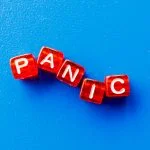10 Minutes
CONTENTS
When it comes to mental health issues, the most frequently mentioned disorders are depression and anxiety. This is because they are more well-known, but we must broaden the conversation to include other problems to educate and assist those who are suffering, as well as to raise awareness of less common mental health disorders. Bipolar disorder is one such problem that is rarely discussed. Many people have heard of it and may have even seen it depicted on TV or in movies, but these depictions are frequently wrong. They also don’t get into the nitty-gritty of the disease, such as the distinctions between mania and hypomania. More people can obtain the support they need by finally putting a name to their thoughts and experiences by discussing crucial themes like these.
Bipolar disorder can generate drastic mood swings. You can go from severe sadness to “mania,” which is characterized by racing thoughts, exuberant energy, and jumbled emotions. Have you come across the term “hypomania” before? It’s a less severe form of mania. It may appear pleasant because your mood has improved and you have more energy than usual, but it is not excessive. In people with bipolar disorder, hypomania can swiftly turn into mania. It could also lead to a serious case of depression. Mania and hypomania are both characteristics of bipolar illness. They can affect people who aren’t bipolar. The symptoms of both diseases are similar, albeit manias are more severe. Bipolar disorder is a mental illness in which a person’s mood, energy, activity level, and thought patterns change.
This article looks at the differences between mania and hypomania, as well as its symptoms, treatments, and prevention. There are self-help suggestions as well as advice for friends and family members. People suffering from mania or hypomania can benefit from psychotherapy and antipsychotic medications. Hypomania can be addressed simply by altering one’s lifestyle.
FAQs
A UNIQUE METHOD TREATING Anxiety
a successful and proven concept focusing on underlying causesAnxiety TREATMENT LASTING APPROACH
0 Before
Send Admission Request
0 Before
Define Treatment Goals
1 week
Assessments & Detox
1-4 week
Psychological & Holistic Therapy
4 week
Family Therapy
5-8 week
Aftercare
12+ week
Refresher Visit
Anxiety Insights
latest news & research on Anxiety
Best Anxiety Treatment Centers
For those seeking a more upscale and exclusive experience, luxury anxiety rehab centers combine high-end amenities with top-notch treatment
read more
Life with Panic Disorder
More often than not, we can’t explain what’s going on with our minds. Emotions, thoughts and some happenstances are really intricate that we fail to understand what’s really going on. Panic attacks, for instance, stem from some type of fear. If it is recurrent, it might harm us greatly. However, there are ways to cope and manage panic attacks.
read more






